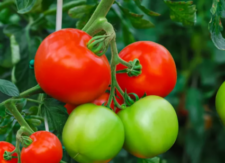K-State food safety expert shares tips and safety precautions for home canning
MANHATTAN, Kan. – With the arrival of fall, many people enjoy canning their produce to enjoy during the colder months and holidays.
Two common canned favorites during fall are sweet potatoes and tomatoes. Kansas State University food scientist Karen Blakeslee shares tips and safety precautions for home canning.
She says that food preservation by means of canning is backed by years of science and was a much-utilized method in times where food was scarce for the fall and winter seasons. However, despite food preservation’s time-backed safety, older recipes may not be ideal.
“The science is evolving, so over the years the recommendations to preserve food safely have evolved,” said Blakeslee, who is also coordinator of K-State’s Rapid Response Center for food science. “Food preservation methods and practices of yester-year may not be safe for today.”
To ensure food safety, Blakeslee advises only using recipes that are up-to-date. While sweet potatoes and tomatoes are vegetables, the two foods differ in their acid content.
Sweet potatoes are a low-acid food. Blakeslee said the canning requirements for sweet potatoes include:
• Pressure canning to get the temperature up to 240°F to destroy the dangerous food pathogen, Clostridium botulinum.
• Cut potatoes into chunks or pieces, do not puree or mash. Heat cannot move adequately through the jar with a dense mash.
Tomatoes are in between a low-acid and high-acid food, and Blakeslee outlines the different canning requirements:
• Do not can tomatoes that have been on the vine during a frost or freeze. The acidity has changed throughout the temperature change and bacterial pathogens are more likely to have invaded.
• Tomatoes that are overripe may also not be ideal to can, as a tomato’s acidity decreases as they mature – again, making bacteria more likely to grow. Ensure correct canning temperatures are reached to kill bacteria.
• Tomatoes not subjected to a frost or freeze can be safely canned using a pressure canner or water batch canner. With either method, extra acid must be added to ensure safety.
After your produce is canned, there are still a couple safety measures to consider.
“Store canned food in a cool, dry, dark location and use within one year,” Blakeslee said.
Blakeslee recommends using Kansas State University’s resources for safe food preservation and trusted canning recipes. “Remember to adjust your processing for your location to account for higher elevations,” said Blakeslee, who recommends consulting this elevation guide.
Blakeslee publishes a monthly newsletter called You Asked It! that provides numerous tips on being safe and healthy. More information is also available from local extension offices in Kansas.
-30-
FOR PRINT PUBLICATIONS: Links used in this story
Rapid Response Center for food science, https://www.rrc.k-state.edu
Preserving vegetables, https://bookstore.ksre.ksu.edu/pubs/MF1181.pdf
Preserving tomatoes, https://www.bookstore.ksre.ksu.edu/pubs/MF1185.PDF
K-State food preservation resources, https://www.rrc.k-state.edu/preservation/index.html
Food preservation recipes, https://www.rrc.k-state.edu/preservation/recipes.html
Food preservation elevation guide, https://bookstore.ksre.ksu.edu/pubs/MF3172.pdf
You Asked It! monthly newsletter, https://www.rrc.k-state.edu/newsletter
K-State Research and Extension statewide offices, https://www.ksre.k-state.edu/about/statewide-locations.html
K State Research and Extension is a short name for the Kansas State University Agricultural Experiment Station and Cooperative Extension Service, a program designed to generate and distribute useful knowledge for the well being of Kansans. Supported by county, state, federal and private funds, the program has county extension offices, experiment fields, area extension offices and regional research centers statewide. Its headquarters is on the K State campus in Manhattan. For more information, visit www.ksre.ksu.edu. K-State Research and Extension is an equal opportunity provider and employer.
Story by:
Taylor Jamison
[email protected]
For more information:
Karen Blakeslee
785-532-1673
[email protected]





